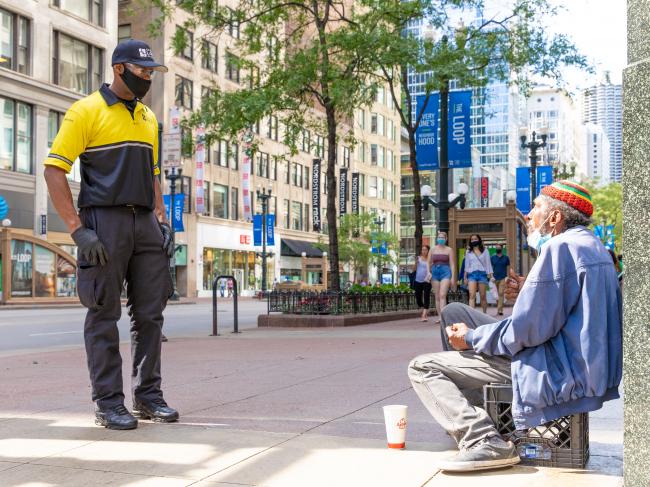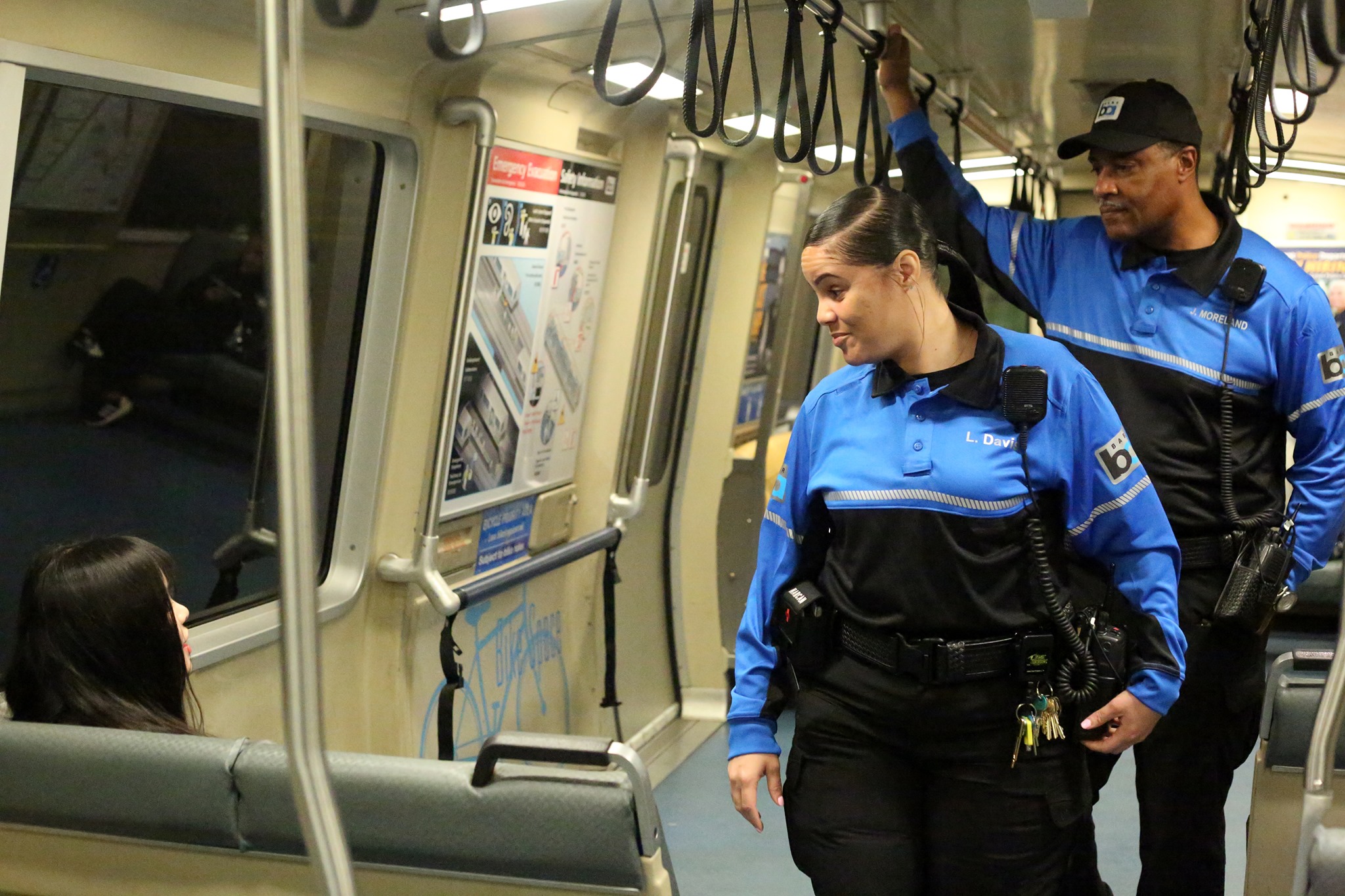Update 4/20/23, 11:15 AM: After publication of this article, a spokesperson for Mayor Lori Lightfoot requested that Streetsblog highlight the fact that while the North Michigan Avenue ambassadors program, called the Corridor Ambassador program, is managed by the Magnificent Mile Association, it was introduced nearly a year ago as a joint initiative of the Mayor's Office and the Chicago Department of Planning and Development and is funded via a city grant.
Last weekend's youth-involved civil unrest and shootings downtown and at 31st Street Beach were the latest in a series of such incidents in recent years. This kind of chaos poses a serious threat to public safety, not to mention damaging Chicago's reputation as a place to live, work, do business, and visit. The $10,000 question is, what will Mayor-elect Brandon Johnson do to address this problem? I thought his statement in the wake of the violence was pretty good, if not perfect.
— Brandon Johnson (@Brandon4Chicago) April 16, 2023
Johnson was about two-thirds correct. He was right to say that 1. Such behavior is unacceptable and 2. We shouldn't demonize the underserved youth who engaged in criminal activity, because antisocial behavior is the predictable outcome of not providing kids with enough options for constructive activities. Changing that would be an effective longterm solution.
But the third element that was missing from Johnson's statement is what should be done in the short term to prevent violence downtown and in other potential hotspots. Chicagoans who voted for tough-on-crime candidate Paul Vallas in the mayoral election would surely say the answer is deploying more police. But most voters rejected that approach, reasoning that our city already spends billions on cops each year, and heavy-handed policing has the potential to escalate the enforcement of minor infractions to tragic violence. Johnson ran as a police reformer, so he's probably not considering that tactic.
But here's an alternative public safety idea the new mayor should consider. In recent years, public transportation systems across the country have recently been deploying well-trained, unarmed Transit Ambassadors to deter crime and serious rule-breaking, and promote a peaceful, orderly environment on trains and in stations. What if we applied this strategy to the Loop and other outdoor public spaces in addition to the CTA?
While data on the effectiveness of Transit Ambassador programs is limited so far, there is some reason to believe they are working. For example Bay Area Rapid Transit’s ambassadors conducted over 12,000 “educational interactions” with riders during the first year of the program, according to the transit agency, but out of those incidents, the ambassadors only had to call for police backup on 132 occasions, or about 1.1 percent of the cases.
The Chicago Loop Alliance already runs an ambassador program on State Street in the Loop, and the Magnificent Mile Association manages one on North Michigan Avenue. These workers already do some of the tasks I'll outline below. The Chicago Public Schools' Safe Passages program, featuring community members who supervise kids' routes to and from school, is another example of this tactic that has been credited with reducing violent crime along these corridors by 14.3 percent.

But I'm thinking the city could greatly expand this approach downtown, with Ambassadors stationed on weekends on major intersections every two blocks or so across the Central Business District.
As I envision it, like Transit Ambassadors the Downtown Ambassadors would be pairs of unarmed, uniformed outreach employees, well-trained in crisis intervention and conflict de-escalation. They would be knowledgeable about the CTA and local landmarks. They'd provide a high-visibility authority presence in potential hotspots to discourage violence and other crime. If there's a flare-up, the Ambassadors wouldn't directly intervene, but would serve as additional eyes and ears to notify police if an armed response is warranted.
Meanwhile, the Ambassadors would make themselves useful doing outreach to unhoused folks, offering them water, snacks, hygiene items, and providing referrals to social services like housing and healthcare. However, these workers would not be responsible for enforcing rules or laws.
The Ambassadors would also serve as a reassuring presence to locals and visitors. They'd be available to provide advice on accessing transit, government offices, cultural amenities, and tourist attractions.
As long as the Downtown Ambassadors are well-trained and behave professionally, this could be a cost-effective way to promote public safety, help at-risk individuals, create jobs, and improve downtown Chicago's reputation as a safe, fun place to spend time.
What do you think Mayor-elect Johnson – how about giving this a go?




